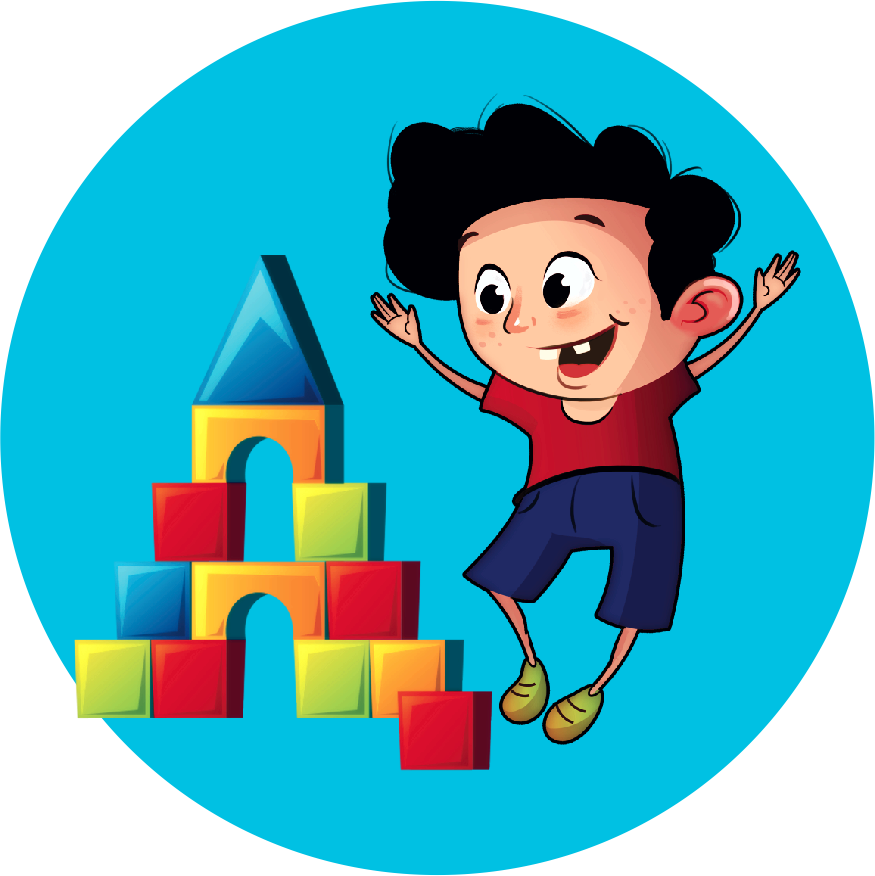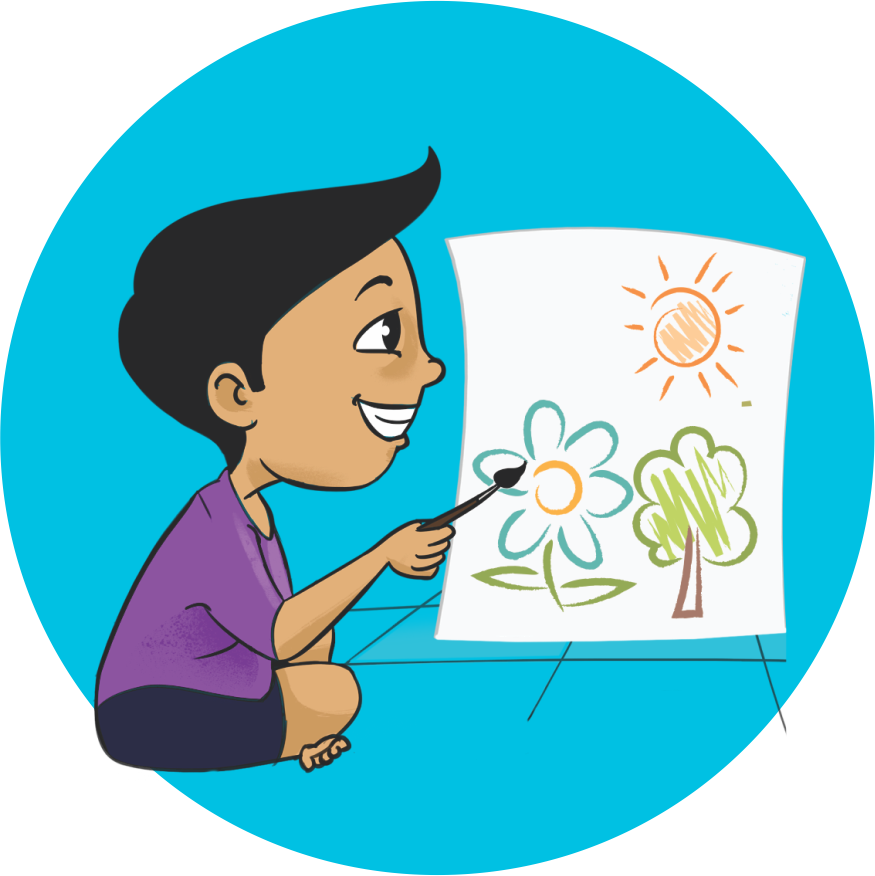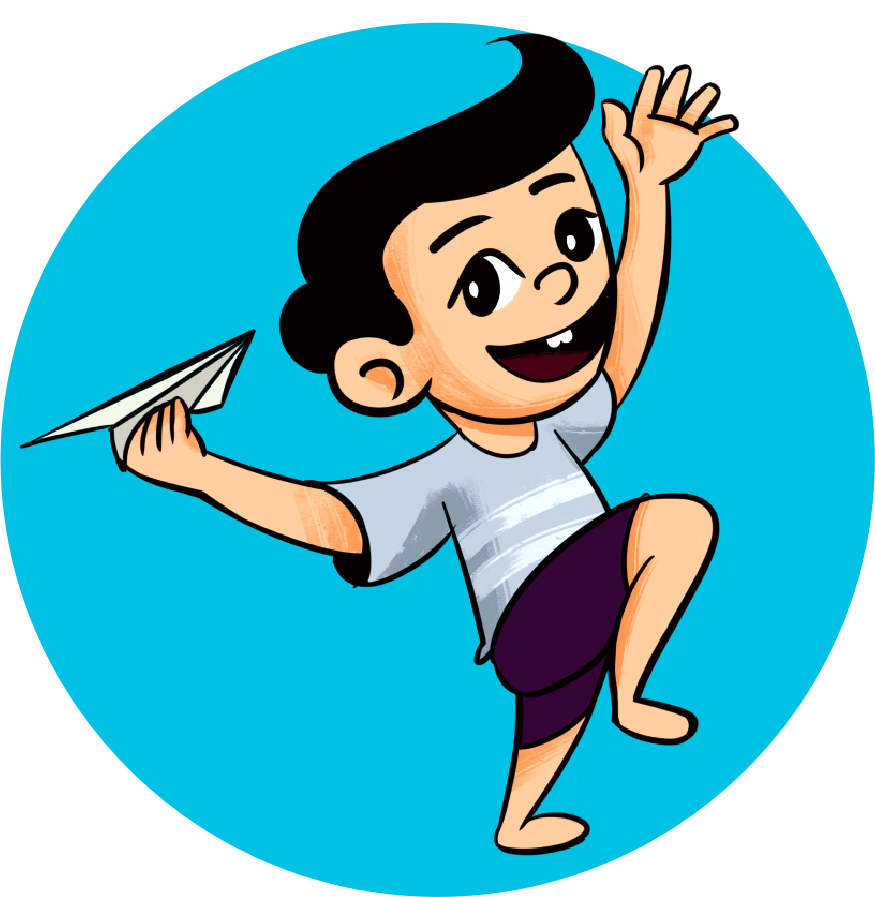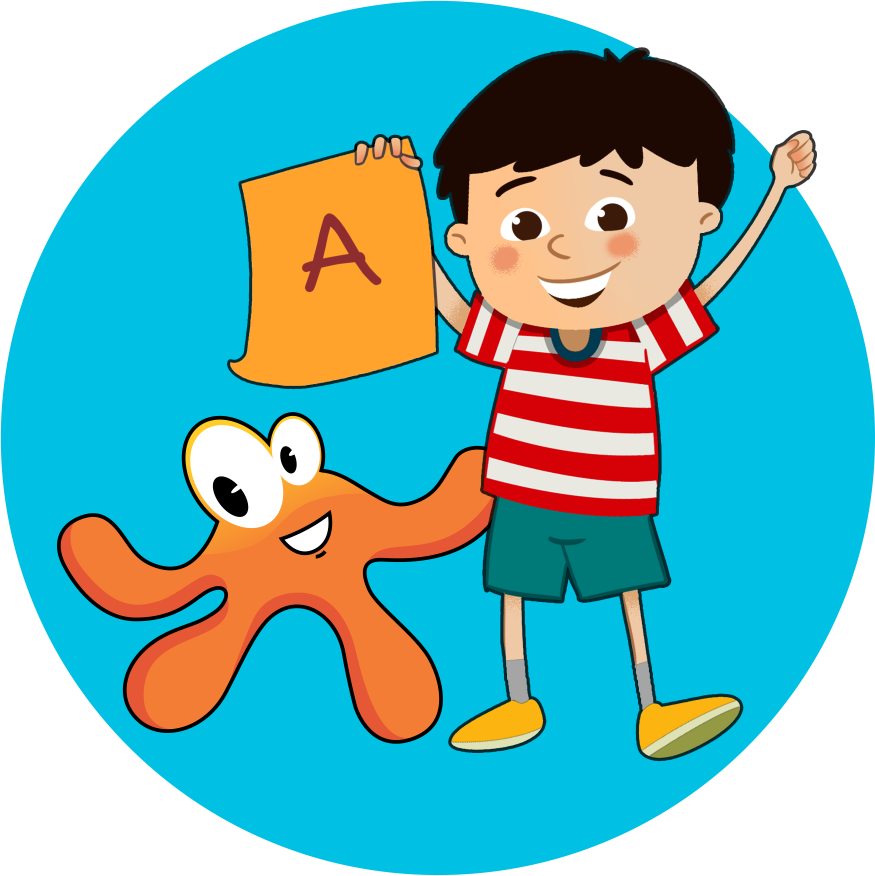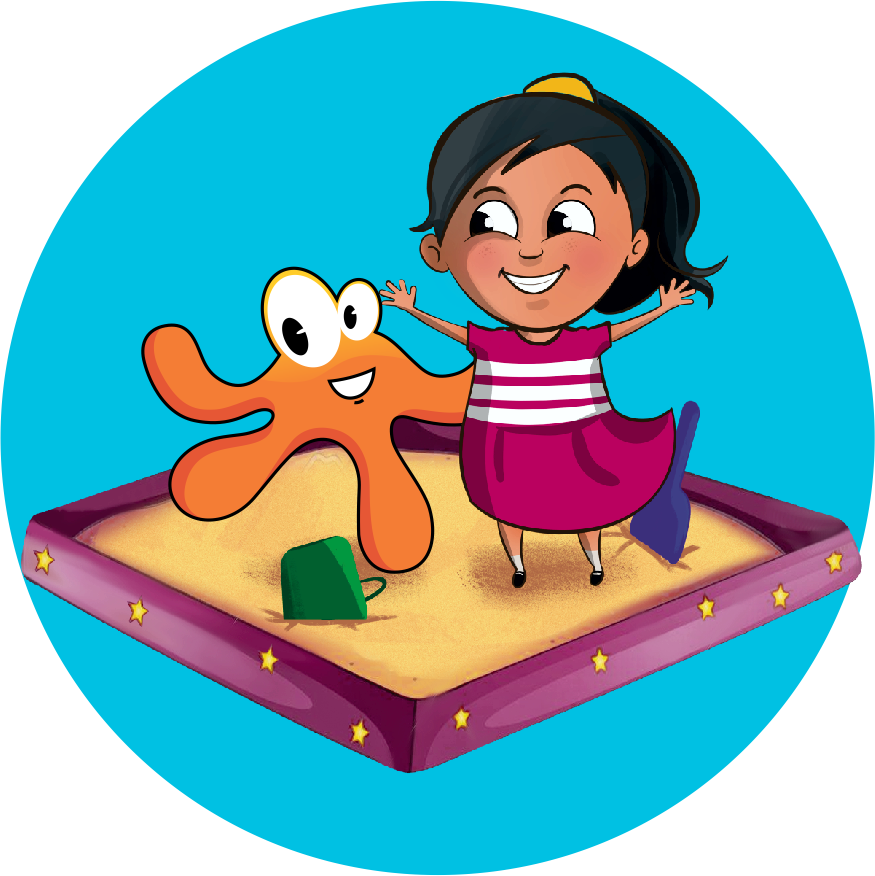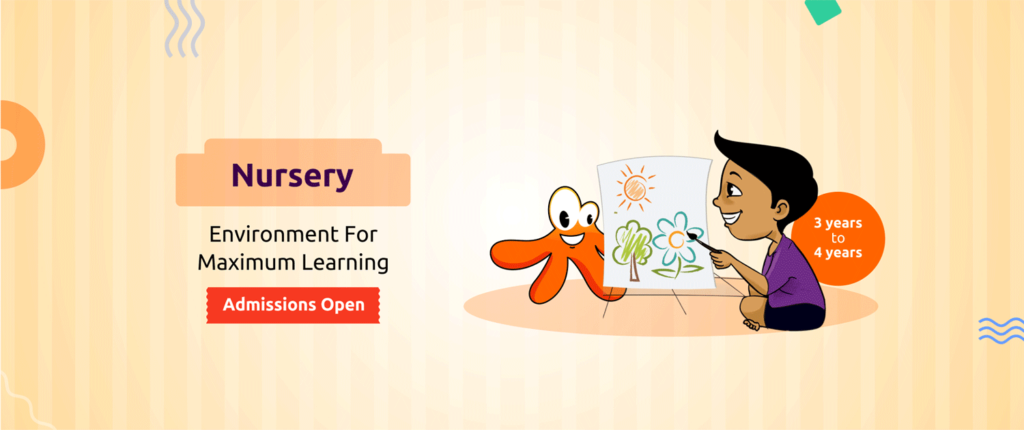
Program Highlights
At the age of 3 children’s language skills and imagination is in over drive. They like to play with new vocabulary, make up imaginary stories, build relationships, try to manage their emotions and learn moral values. They need activities that will help them develop these skills. Thus opportunities to socialise, learn right from wrong, imaginative play, are woven into the nursery curriculum. As they further explore the world around them academic games like guess the beginning sound, quizzes, number games, help them hone their academic skills.
Children become even more curious at this age and backed by language skills want to know ‘who’, ‘what’, ‘why’ of everything. This is therefore a good time to introduce concepts of opposites like big and small, over and under, in and out, heavy and light, on and above etc. children will have plenty of opportunity to learn as they navigate the obstacle course, or follow the instructions while playing Simon says, or while playing with ball outdoors.
As at this age children show interest in doing things on their own more individual activities will be given to them. Whether it is art and craft work or coming in front of the class and telling a story or singing songs or doing a show and tell.
As they develop their fingers and wrists and the pincer grip we challenge them with some more complex pre-writing and pre-reading skillslike tracing, making shapes like circle, square and triangle, colour with more than one colour, keep objects in seriation, classify few and many, etc.
We will indulge in fireless cooking to clear mathematical concepts like measurements, sizes, capacity, volume etc.
Your little one has grown from a babbling baby to a talking toddler. It is time to enhance their Language Skills. Playgroup children will do activities like books, stories, poetry, rhymes, conversations, show and tell, letter identification games, etc. to develop their language skills.
A self-centric baby now shows signs of enjoying other company than the parents. This is the time we give them opportunities to develop their social-emotional and personal skills. Small and large group activities, outdoor and indoor play, races, individual activities, etc. will develop these skills by practicing to wait for their turn, work in a group, sharing, being polite and respectful, etc.
Children’s grasping power is increasing, and now they enjoy more challenging activities that give them an opportunity to think and problem solve. They are beginning to understand simple concepts. Therefore it is now to indulge in activities like a treasure hunt, dramatic play, sorting, I spy with my little eye, Simon says.
Understanding and knowledge of the world will be boosted by celebrating festivals and special days, incursions and excursions, nature walks, etc. Children will know about plant life, animal life, community helpers, weather, transportation, etc.
Program Details
- Use of flash cards\ board books: for the following topics for vocabulary development.
- Animals,
- colours,
- shapes,
- fruits, vegetables,
- vehicles,
- community helpers,
- seasons,
- dance forms,
- Musical instruments.
- Introduction to Capital Letters and Numbers 1-10,
As the kids settle they will start writing with big pencils. In the year we will complete writing of capital letters and recognition of small letters. With help of Glen Doman Method of teaching we will introduce the kids to few simple words to read.
- Phonics class: kids will be introduced sounds of alphabets for better pronunciation. They would be taught in a special patter.
- Story Telling: – with the help of Books, puppets, props and actions. It would be held in 3 languages English, Hindi, Marathi.
Outcome: listening, language skills.
- 15-20 Minute Games:- free play time
- Explore Activity:- sounds, shapes, colour, etc.
- Sensory Activity:- mud, stone, sand, water, hot, cold, etc.
- Music time:- kid friendly songs and poems with dance and actions. They will be introduced to few musical instruments as well.
- Active sense’s:- sight, sound, touch, tastes buds, smell.
- Physical Activity: – free play, yoga, exercise .
- Shlok : Sanskrit shloks.
- Potty training: with the help of the parent we will potty train the kids who are not .
In the program we would be covering different topic with which kids are familiar and the method of teaching is designed considering the age of the child and capacity.
Program
June to March
Age Group
3 Years to 4 Years
Timings
Monday to Friday
9.00 am to 12.30 pm
Staff And Children ratio
2 Teachers + 1 Assistant :
20 children


